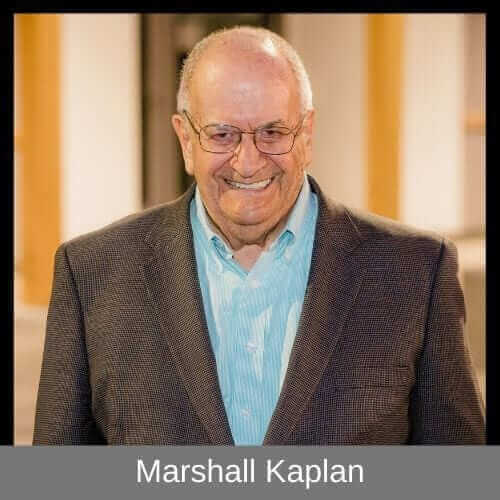
Ep. 8 - Marshall Kaplan has stamped his mark on community development under Presidents Kennedy, Nixon, and Carter. And he has some definite opinions on HUD!
Top Takeaways:
-
- Factors that have blurred HUD's history since its inception
- Why federal programs rarely worked and only some slight variations that didn't happen could have changed that
- The short-lifespan of HUD's program which led to the limited research function
- The irrational planning process that kills any way to help people with affordable housing
- How to make your mark with young people in retirement
Listen to the difficulties of HUD's role as a lead agency, how close we came to an income support program, program maturity in light of administration changes, meddling as a policy device, the effect of partisan politics, guns vs. butter in funding, the research efforts, and the effect of targeting.
"I look at the predecessor environment to HUD and I think HUD may have lost the battle before it started. The effort to desegregate growing ghettos and ultimately barriers began in the '50s. There was a chance to, in effect, integrate the suburbs and metropolitan areas that reflected not the segregation of the ghetto but the integration of metropolitan areas, and the federal government failed at that task."
Marshall was former Dean of the Graduate School of Public Affairs at University of Colorado and directed the Wirth Chair in Community Development. Before coming to Colorado, he served in the Kennedy Administration and Carter Administration where he focused on poverty, Model Cities and community development. During the first two years of the Nixon Administration, he worked with HUD on Model Cities and simplification of Federal programs. He provided staff support to the Banfield Commission created by President Nixon and chaired by Senator Patrick Moynihan. Working with Assistant Secretary Robert Embry, he coordinated development of the Carter Urban Policy at HUD. During the late sixties, and early seventies, he was a principal in the policy advisory firm of Marshall Kaplan, Gans and Kahn. Mr. Kaplan advised numerous federal, state, and local governments as well as non-profit community groups and businesses on diverse public policy alternatives related to community development. He advised Senator Robert Kennedy's Bedford-Stuyvesant development and his efforts to stimulate renewal of Hunter's Point, San Francisco.
With Rockefeller Foundation support, Marshall Kaplan, while Dean, began the Aspen Global Forums which facilitated development policy consensus between U.S and other nations' leaders. Marshall joined Paul Merage, a successful entrepreneur and philanthropist, in Southern California. He helped Paul Merage create and he directed three foundations, one on Immigration and the American Dream, one linking retirees to volunteer jobs in non- profit groups, and one fostering trade between start up Israeli companies and the U.S. For years, Marshall has been advising El Sol Science and Arts 1000-student Academy which serves mostly low income Latino children, many of whom are immigrants or children of immigrants. Recently, NCUST named El Sol the best dual immersion school and among the top 15 schools in urban America. Marshall has written or co- edited numerous articles and several books on urban policy. He is a winner of the ADL Proclaim Liberty Award in Denver, the University of Colorado Sustainability Award, and, over the years, awards related to his work at El Sol.
Listen to Marshall's excellent first-hand account of HUD's evolution and expectations and its ability to meet them. HUD's ongoing conflict between people and places and the US's missed opportunity to solve integration issues. Listen in to hear a firsthand narration of the workings of HUD since its early days and why it failed to fulfill its purpose. You will also hear why so many programs that HUD began were prematurely killed.
Key Moments:
He speaks on the role of HUD throughout its history of existence and why he believes it lost its battle long before it even started [1:51]
He explains the two studies he did that showed how difficult federal programs were to work with [14:37]
He explains the birth of the model cities program in detail, the problems it encountered, and its eventual death two years later [16:45]
How HUD killed programs prematurely while muddling through without proper research [18:16]
He explains why they had difficulty targeting though it was an important objective that could not be achieved at the time [24:27]
Why categorical programs are hard to be tailored to the needs of the community [27:33]
Why he wrote the book on the irrelevance of city planning in the 1960s [30:10]
He explains why he believes that Washington is not a jungle and does work in a certain way [35:58]
Orange County Register Article

